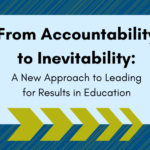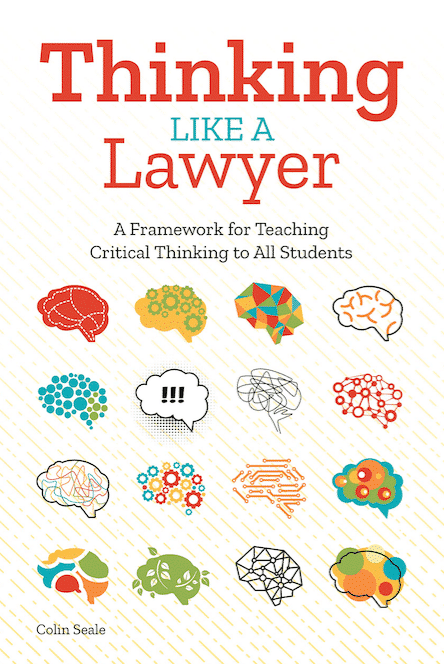I often get the side-eye when I mention gifted education and equity in the same sentence. After all, gifted programs have a well-deserved reputation for concentrating resources on already-privileged students, and students of color are significantly underrepresented.
So before I dive into my case for expanding—rather than eliminating—gifted education programs, I want to lay a brief foundation for how to think through this issue. Here is a simple, three-part premise to frame this conversation:
- All students have gifts and talents.
- Some, but not all, students are academically gifted and talented.
- The current population of students we identify as academically gifted and talented is unacceptably whiter and wealthier than the actual student population of academically gifted and talented students should be.
I do not anticipate much disagreement with my first point about all students having unique gifts and talents. Classroom teachers would not dispute my second point about the existence of out-of-this-world brilliant students who are rarely challenged by the content and instruction delivered in the standard classroom environment. Whether we choose to meet or even acknowledge these students’ needs, however, often depends on our comfort level with labeling children based on their advanced academic needs—an inconsistent objection given all the ways public education sorts and labels children in just about every other context.
And my last point is indisputable. Advocates and experts have highlighted the stubbornly persistent equity issues in gifted education for decades. Black students are 66% less likely to be identified as gifted compared to white students with similar test scores. Black, Latinx, and Native American students are far less likely to attend a school that even offers a gifted program. These are just some of the issues with which the gifted education field must grapple.
It is therefore not surprising that school system leaders prioritizing equity would want to do something about the inequities in gifted education. My concern is that more and more of these leaders are doing the wrong thing. From Anchorage to Boston, school systems are making the decision to contract or eliminate their gifted education and advanced academic offerings.
On the surface, this seems logical. If I’m leading a system in which the population of eighth graders taking Algebra I has a disproportionate number of white and Asian students, then eliminating Algebra I as an offering for eighth graders looks like an obvious pathway to equity. According to this way of thinking, shutting down gifted education and selective magnet programs that struggle with a similar gap—in which the program demographics are not even close to representative of the overall student demographics—seems equally wise. But like so many leading equity-focused scholars of color in gifted education research, I disagree with these approaches and favor a more expansive solution. As these scholars argue, shutting down gifted programs only deepens the inequities for brilliant, underrepresented students of color and adds another barrier to unlocking their genius.
I agree that it is unacceptable to have eighth grade Algebra I classes and gifted education programs that disproportionately exclude Black and brown children. But if equity is the goal, we should be mandating that every eighth grader takes Algebra I—and then structure the entire pre-K to seventh grade student experience to ensure this is a legitimate possibility for every child. Since when does equity mean everyone gets nothing?
“Since when does equity mean everyone gets nothing?”
I do not doubt the good intentions behind the decisions educators make in the name of equity. I see a problem, however, with the outcomes associated with decisions made with harmless intentions but harmful impact. This is personal to me, as someone who was a child who struggled with excessive behavior challenges in kindergarten and first grade until I was identified as gifted and learned what too many students like me never have the privilege of learning: My behavior challenges came from a lack of being challenged. How many brilliant students without access to gifted programs become disengaged and disruptive because no one prioritizes their special needs?
If equity is the concern, we should also name the inequitable reality that parents with means will always find a way to ensure their children receive whatever out-of-school enrichment resources their children need. My greatest concern? The admirable but demonstrably false notion that school systems can fully implement an “all kids are gifted” framework that attempts to address the issue of eliminating the need for specialized gifted programming. Gifted students have unique academic, social-emotional, and developmental needs that require specialized programming to meet these needs. Take the example of a gifted child with asynchronous development, a fancy way to describe the type of mismatch that occurs when a fourth grader reads at a 10th grade level but interacts with others at the social level of a first grader. This child will not be adequately served by an “all kids are gifted” approach that does little to provide the necessary and differentiated support that child needs.
For identified and should-have-been-identified gifted students of color, these needs are even more specialized. When teachers do not understand that gifted learners can struggle mightily with underachievement, especially in underrepresented populations, they cannot provide the tools and services needed to address this need. If teachers do not understand the “gifted and ___” complexities of identifying and serving English language learners who are also gifted, students receiving special education services who are also gifted, and children of undocumented families who are also gifted, they are all but guaranteed to leave all this brilliance on the table. But if we keep eliminating, instead of expanding, gifted programs for populations who need them the most, there will be no table, period.
In my work with thinkLaw, I lead our efforts to support school systems across the nation as they deliver the type of instruction that is typically reserved for gifted and talented learners. But there is a big difference between “gifted instruction for all” and “all kids are gifted” approaches. Most states have specific definitions for which children are considered “gifted,” which typically include an acknowledgment that these children require specialized services that are not provided in the general education classroom to thrive. This requires a child-driven approach, and a one-size-fits-all model for instruction will not meet the unique needs of gifted learners. “All kids are gifted” is not true and erases the unique needs of gifted learners. But “gifted instruction for all” recognizes that the same instructional strategies used to unleash magic in gifted students can and should be used in general education classrooms for all students.
It has never been more important to ensure that students most impacted by our society’s inequities are not just getting what they need to be successful academically. We must expand gifted programs and create them where they do not exist to ensure students receive the tools they need to lead, innovate, and break the things that must be broken. This way, we will ensure stories of brilliant students of color breaking through unjust systems are no longer exceptions to the rule. Expanding these programs will open up an important pathway to help them have a legitimate opportunity to achieve truly exceptional academic heights.
This essay was originally published for Teach For America’s One Day magazine: https://www.teachforamerica.org/one-day/opinion/stop-eliminating-gifted-programs-and-calling-it-equity
LIKE WHAT YOU SEE HERE? DIG DEEPER WITH US BY:
>> Connecting With Us On Twitter, Facebook, LinkedIn & Instagram
>> Joining Our Exclusive Facebook™ Group
>> Getting A Copy of Colin Seale’s Best- Selling Book, Thinking Like A Lawyer
>> Joining the Raising Critical Thinkers program, exclusively for parents
>> Requesting A Custom Quote For Your Needs








Leave a Reply